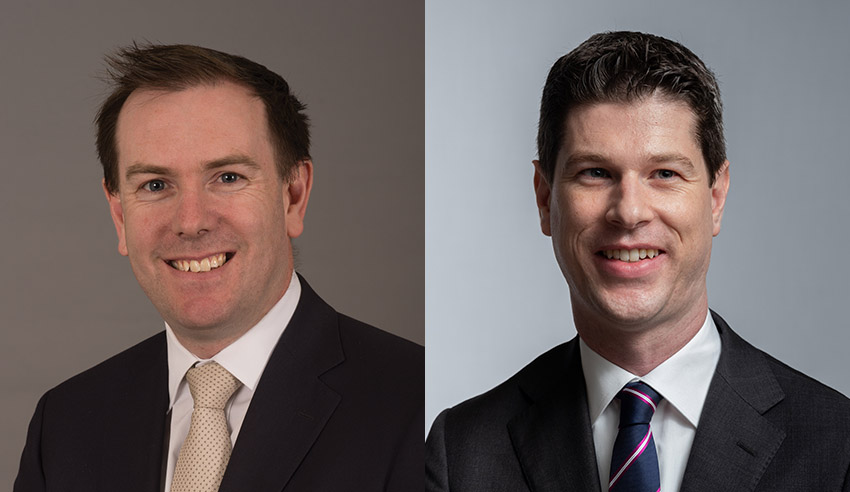COVID-19 has set up what could be a litigation battleground as plaintiff firms and funders get ready to bring forward numerous class actions whilst companies are seeking a “safe harbour”.

The Australian Institute of Company Directors (AICD) has written to Treasurer Josh Frydenberg, urging an emergency amendment to the Corporations Act for directors in relation to earnings guidance and forward-looking statements.
AICD general manager for advocacy, Louise Petschler said that the reform they are pushing “is a targeted solution directly tied to the current pandemic and the threat of opportunistic class action litigation.”
Cameron Hanson, partner and head of the Sydney disputes group at HSF, said that the uncertainty and pace of change with respect to COVID-19 have heightened the regulatory and litigious risks for both listed companies and their boards.
Previously Gilbert + Tobin experts told Lawyers Weekly that ASX’s recent statement has reiterated that it does not expect listed companies to make forward-looking statements unless they have a clear and reasonable basis for doing so.
But according to Mr Hanson, “as companies are doing more internal forecasting, and as analysts update their research, companies are going to be increasingly under pressure to say something where there is a gap between their expectations and the markets’ expectations.”
Mr Hanson says the risks of class actions lie in the difficulty that will come if a company materially overestimates or underestimates the impact of COVID-19 on earnings, which is almost inevitable given the uncertainty.
“Shareholder class actions are always framed with the benefit of hindsight,” Mr Hanson said.
“What might seem like a reasonable forecast prepared in the current pressured environment might be made to look unreasonable when picked over for months and years by a class action firm with the benefit of hindsight.”
Plaintiff firms, funders gearing up
With companies scrambling to find their feet during a time of great uncertainty, plaintiff firms and funders are circling potential targets for first signs of what could emerge as a wave of class actions.
From the plaintiff firms’ side, the infamous Ruby Princess debacle has been the forefront spotlight of an almost certain class action case from Shine Lawyers.
Furthermore, McCullough Robertson Lawyers also reported that there could be action in the aged care industry which is also largely susceptible to class actions at this moment.
The litigation funding industry is also getting ready. There is Robert Rothkopf and Simon Burnett founders of Balance Legal Capital along with investment committee member Lord David Gold, “King of Litigation”. They are set to join the Australian litigation scene after securing Balance's 150 million war chest.
However Balance have firmly stated that they "would never consider funding any action in relation to COVID-19."
There is also Omni Bridgeway, which has announced an array of global leadership appointments and litigation specialists, for its Australian operations in response to what it calls an “increased appetite for dispute finance solutions”.
Omni Bridgeway had given a presentation to investors on 17 March pointing out that in previous pandemics including the SARS outbreak the company’s share price had grown strongly.
Menzies Research Centre director Nick Cater had blasted the statement saying “it is outrageous that in this crisis Omni Bridgeway is spruiking increased profits on the back of class actions.”
Omni Bridgeway rejected that accusation and said the presentation had discussed the likely impact of the virus on the company based on past experience.
A ‘safe harbour’ solution
For many companies and boards, they are worried that COVID-19 has presented an opportunity for an increased class action climate which is why the AICD is working on a proposal emergency amendment, with Herbert Smith Freehills to provide a “safe harbour” from mass litigation activity.
“The AICD is proposing that the Corporations Act be amended via the Treasurer’s new power to create a temporary safe harbour to provide that only ASIC can take action against listed disclosing entities or their directors or officers in relation to earnings guidance or forward-looking statements about performance made in the context of the COVID-19 pandemic,” Ms Petschler said.
According to Timothy Stutt, HSF’s Australian lead for ESG and sustainability and responsible business practice, the temporary amendments to the Corporations Act being proposed by the AICD are intended to provide a “safe harbour” for listed companies by barring private litigious claims, including shareholder class actions, being brought on the basis of earnings guidance or forward-looking statements regarding the impact of COVID-19.
“The safe harbour would not apply in respect of ‘factual’ matters, such as disclosure of information on operational shutdowns or loss of material contracts. It would, however, provide companies with more confidence to make disclosure to the market about the expected impact of COVID-19 on their business,” Mr Stutt said.
“The quality of disclosure made by companies would continue to be policed by ASIC, and directors would continue to be required to exercise care and diligence, and act in the company’s best interests, in accordance with their existing directors’ duties.”